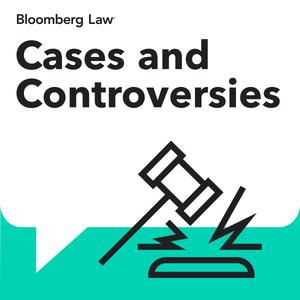
Cases and Controversies
Bloomberg Law
- 16 minutes 36 secondsJustices Mull Scrutiny Test In Porn Site Age Verification Case
Several justices on the Supreme Court seemed eager this week to debate the constitutionality of a Texas law that requires porn sites to verify the age of users to keep kids from viewing obscene content online.
But the court was only asked in the case argued Wednesday to answer whether the US Court of Appeals for the Fifth Circuit applied the correct standard when assessing whether the law violated the free speech rights of adults.
“I don't know if there is going to be sufficient alignment on how to get to the answers here,” said Mark Brennan, who works with a variety of companies in the online space as a partner at Hogan Lovells.
Brennan joins “Cases and Controversies” hosts Kimberly Robinson and Lydia Wheeler to discuss Wednesday’s argument. They also break down the court’s decisions earlier this week in disputes over fancy dog food and federal overtime rules.
Hosts: Kimberly Robinson and Lydia Wheeler
Producer: Mo Barrow
Do you have feedback on this episode of Cases & Controversies, Give us a call and leave a voicemail at 703-341-3690.
17 January 2025, 4:54 pm - 18 minutes 56 secondsSocial Media, National Security Collide in TikTok Argument
The much-anticipated argument of the future of TikTok in the US will be heard by the Supreme Court on Friday.
Cases and Controversies hosts Kimberly Robinson and Lydia Wheeler preview the case with Knight First Amendment Institute staff attorney Xiangnong (George) Wang.
The Biden administration says the law, which effectively bans the social media site in the US unless sold by its Chinese owner, is necessary for national security. But the social media site and its users say its censorship.
Do you have feedback on this episode of Cases and Controversies? Give us a call and leave a voicemail at 703-341-3690.
9 January 2025, 9:15 pm - 15 minutes 13 secondsBroadway, Books, and Big Rulings Cap Supreme Court Year
After an eventful 2024, the justices are now on winter break until Jan. 10.
"Cases and Controversies" hosts Kimberly Robinson, Lydia Wheeler, and Greg Stohr review all the biggest news stories from the justices in 2024, from Justice Samuel Alito's flag controversy to Justice Ketanji Brown Jackson's dream-come-true Broadway debut.
They also look ahead to the cases to be heard in 2025, which include an expedited appeal over the social media platform TikTok to another case that could cut back the power of administrative agencies.
Do you have feedback on this episode of Cases & Controversies, Give us a call and leave a voicemail at 703-341-3690.
20 December 2024, 5:37 pm - 16 minutes 22 secondsJustices Lean Into Agency Deference in Environmental Challenge
Justices from across the ideological spectrum appeared primed to limit the scope of environmental impact reviews, but it's unclear if they need a new test to do so.
Cases and Controversies hosts Kimberly Robinson and Greg Stohr breakdown the Dec. 10 arguments in Seven County Infrastructure Coalition v. Eagle County, Colorado, an environmental case about how deep agencies must go in looking at the potential effects of new projects.
Do you have feedback on this episode of Cases & Controversies, Give us a call and leave a voicemail at 703-341-3690.
13 December 2024, 6:02 pm - 24 minutes 4 secondsSupreme Court Weighs Transgender Case Broader Impact
Justices on both sides of the US Supreme Court’s ideological line seemed concerned about a future ruling on gender-affirming care for minors reaching far beyond Tennessee and transgender kids.
Whether an appeals court erred in how it scrutinized the constitutionality of state laws that purport to discriminate against people based on their sex was a central part of Dec. 4 arguments in United States v. Skrmetti.
Cases and Controversies hosts Kimberly Robinson and Lydia Wheeler take listeners through the arguments in the Biden administration’s fight against Tennessee’s ban on hormone treatments and puberty blockers for transgender minors and what the justices’ questions, or lack thereof, signal for the outcome of the case.
Hosts: Lydia Wheeler and Kimberly Robinson
Producer: Mo Barrow
Do you have feedback on this episode of Cases & Controversies, Give us a call and leave a voicemail at 703-341-3690.
6 December 2024, 5:11 pm - 19 minutes 6 secondsHigh Court Vaping Case Tests FDA's Regulatory Powers
A case testing the federal government's ability to regulate potentially harmful tobacco products will kick off arguments at the US Supreme Court in December.
The Biden Administration is fighting to keep off the market new liquids for e-cigarettes sold under flavors like "Blackberry Lemonade" and "Killer Kustard Blueberry" that can attract kids in its appeal of a US Court of Appeals for the Fifth Circuit decision to set aside the Food and Drug Administration's orders denying their approval.
Typically, the court doesn't agree to hear a case "to pat the lower court on the head and say, 'Really good job,'" said Carter Phillips, a partner at Sidley Austin who's argued 90 cases before the justices.
But, he said, "this is a court that is much more skeptical of agency decision-making than the court has ever been, at least in the time that I've been practicing before it."
Phillips joins “Cases and Controversies” hosts Greg Stohr and Lydia Wheeler to talk about the case and why his client, the nonprofit Global Action to End Smoking Inc., is supporting neither side in this dispute,.
Guest: Carter Phillips, Sidley Austin LLP
Hosts: Greg Stohr and Lydia Wheeler
Producer: Mo Barrow
Do you have feedback on this episode of Cases & Controversies? Give us a call and leave a voicemail at 703-341-3690.
22 November 2024, 1:57 pm - 17 minutes 8 secondsNvidia Highlights Justices' Struggle in Drawing Lines
The US Supreme Court struggled with where to draw the appropriate lines in bread-and-butter cases involving Nvidia Corp., criminal law, and immigration deadlines.
In the securities case, the court looked for what Chief Justice John Roberts called a "sweet spot" in the Nvidia investor suit alleging the chipmaker at the heart of the AI boom misled the public about its dependence on crypto-mining revenue.
In the criminal case, the justices described the argument that an attempted murder-for-hire scheme isn't a crime of violence as "absurd." But they found similar irrationality in the government's argument on the other side.
And finally, the justices similarly struggled over whether to give immigrants who voluntarily agree to leave the country more flexibility to appeal their deportation.
Cases and Controversies hosts Kimberly Robinson and Greg Stohr breakdown the justices' concerns in the latest episode.
Hosts: Kimberly Robinson and Lydia Wheeler.
Producer: Mo Barrow.
Do you have feedback on this episode of Cases & Controversies? Give us a call and leave a voicemail at 703-341-3690.
15 November 2024, 8:11 pm - 12 minutes 40 secondsJustices Search for Line in Meta Investor Suit
The US Supreme Court struggled with how to ensure investors get accurate information without exposing companies to massive liability, in the multi-billion-dollar investor suit against Facebook’s parent company, Meta.
The case centers on the fallout from Cambridge Analytica's unauthorized misuse of users data. Investors claim the tech giant mislead investors when warning that data misuse was a hypothetical risk at a time when Meta already knew that that political consulting firm had accessed information on 30 million users.
"Cases and Controversies" hosts Kimberly Robinson and Lydia Wheeler break down the Nov. 6 arguments. They explain how the justices searched for the proper line to draw and ultimately questioned whether they should be the ones to do so.
Why "does the judiciary have to walk the plank on this?” Justice Brett Kavanaugh asked.
Hosts: Kimberly Robinson and Lydia Wheeler.
Producer: Mo Barrow.
Do you have feedback on this episode of Cases & Controversies? Give us a call and leave a voicemail at 703-341-3690.
8 November 2024, 7:25 pm - 18 minutes 20 secondsBiden Supreme Court Case Flips Possible if Trump Wins
Donald Trump is likely to flip Biden administration positions in disputes at the US Supreme Court over certain health-care treatments for transgender minors and federal regulations for build-at-home “ghost guns” should he win the White House.
“These changes in position are not frequent, but we do see them every four years,” said Thomas Wolf, director of democracy initiatives at the Brennan Center for Justice.
Wolf joins “Cases and Controversies” hosts Kimberly Robinson and Lydia Wheeler to talk about when the government has flipped positions in the past and what could happen to current cases that could be targeted this term by a Trump administration.
Hosts: Kimberly Robinson and Lydia Wheeler.
Guest: Thomas Wolf, Brennan Center for Justice.
Producer: Mo Barrow.
Do you have feedback on this episode of Cases & Controversies? Give us a call and leave a voicemail at 703-341-3690.
1 November 2024, 3:29 pm - 13 minutes 33 secondsIs a Bush v. Gore Sequel Possible This Year?
The US Supreme Court is less likely to be the deciding factor in the tight presidential election absent a game-changing dispute in a single state as was the case in 24 years ago when the election went to the justices in Bush v. Gore.
Notre Dame law professor Derek Muller joins Cases and Controversies to explain what states and courts are doing to try to avoid such a situation ahead of Nov. 5, and get his take on what would make high court intervention unlikely and what scenario might trigger a review.
25 October 2024, 12:26 pm - 10 minutes 10 secondsInjury Divides Supreme Court in Lawsuit Over CBD Oil
A truck driver consumed CBD oil, failed a drug test, and was fired from his job, but can he sue the companies that make the product for three times his lost wages?
That was the question before the Supreme Court in a case that tests the scope of the Racketeer Influenced and Corrupt Organizations Act, a federal law otherwise known as RICO that was designed to fight organized crime.
RICO is a criminal law, but it allows people to bring a civil suit to get three times their damages and attorneys’ fees if their "business or property" is hurt by a criminal enterprise.
The manufacturers of the CBD product say the truck driver in this case suffered a personal injury not an injury to his business or property and can't sue them under the law.
Cases and Controversies hosts Greg Stohr and Lydia Wheeler look at the arguments and try to figure out where the justices might come down on this dispute.
Hosts: Greg Stohr and Lydia Wheeler
Producer: David Schultz and Mo Barrow
Do you have feedback on this episode of Cases & Controversies? Give us a call and leave a voicemail at 703-341-3690.
18 October 2024, 8:18 pm - More Episodes? Get the App
Your feedback is valuable to us. Should you encounter any bugs, glitches, lack of functionality or other problems, please email us on [email protected] or join Moon.FM Telegram Group where you can talk directly to the dev team who are happy to answer any queries.
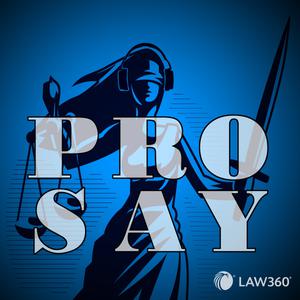 Law360's Pro Say - News & Analysis on Law and the Legal Industry
Law360's Pro Say - News & Analysis on Law and the Legal Industry
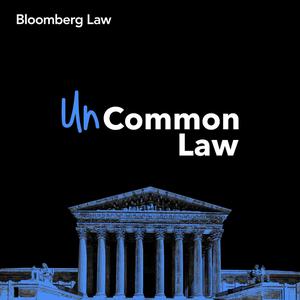 UnCommon Law
UnCommon Law
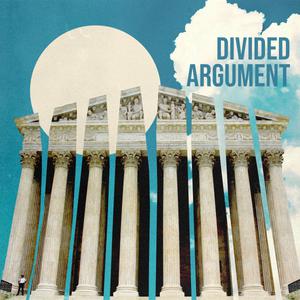 Divided Argument
Divided Argument
 Bloomberg Law
Bloomberg Law
 We the People
We the People
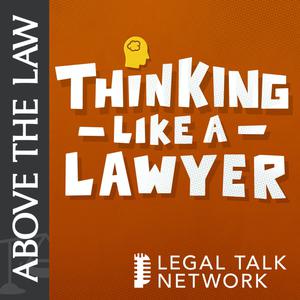 Above the Law - Thinking Like a Lawyer
Above the Law - Thinking Like a Lawyer